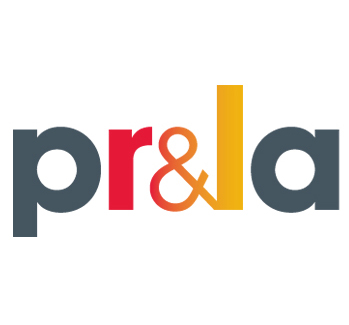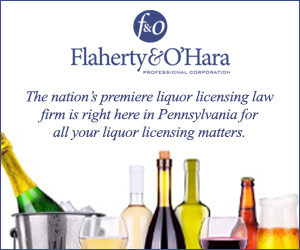State Items
Mitigation
The Wolf Administration announced in early May that it would be lifting all mitigation orders except for mask wearing on May 31. The administration continued that masks would be required until 70 percent of eligible Pennsylvanians were vaccinated. The announcement comes on the heels of similar announcements by our neighbors in New Jersey, Delaware, Connecticut, and New York.
Legislative Priorities
The PRLA Policy Committee met in April to review and update the association’s three-year plan to reflect the impact of the pandemic on our short-, mid-range-, and long-term goals.
Taxes
In mid-April, Governor Wolf signed legislation to align the annual state corporate tax deadline with the federal tax deadline of May 17, 2021. The law also gives the Pennsylvania departments of Revenue and Community & Economic Development the ability to deal with state taxation while the COVID-19 disaster declaration is in effect.
CHIRP Grants
PRLA worked with elected officials to establish a $145 million grant program specifically for hospitality and tourism businesses. The COVID-19 Hospitality Industry Recovery Program (CHIRP) opened in mid-March and was administered at the county level, with grants ranging between $5,000 and $50,000. While some counties exhausted their funding allotment almost immediately, other counties are still accepting applications through June.
PRLA Liquor Priorities on the Move
The following PRLA liquor priorities are moving through the legislative process:
- HB 427 (Pyle): Increases the licensee discount to 15 percent for three years after the conclusion of the disaster declaration. Voted out of the Senate Law & Justice Committee and awaits consideration by the full Senate.
- HB 425 (Dowling): Allows a licensee to sell unused wine and spirits if they close permanently. Further, it allows licensees to expand their outdoor seating area to a non-contiguous area and allows holders of an off-premise catering permit to have unlimited events and not be subject to the five-hour time limit or renewal fee until December 31, 2022. Finally, the bill ensures safe-keeping fees will not be assessed until 2023. Voted out of the Senate Law & Justice Committee and awaits consideration by the full Senate.
- SB 566 (Regan): Allows licenses that do not receive a bid from the current statewide “dead” license auction to be auctioned via a statewide auction. It also eliminates the requirement that a winning bid needs to be deposited within an escrow account within two weeks and allows the winning bidder to have six months to secure funds. Voted out of the Senate Law & Justice Committee and awaits consideration by the full Senate.
- HB 1154 (Masser): Would permanently allow bars and restaurants to sell mixed drinks-to-go. Amended in the House Liquor Control Committee to carve out grocery and convenience stores and voted out of committee. Now it awaits consideration by the full House.
PRLA’s COVID priorities
PRLA’s government affairs team will continue to focus on our remaining COVID-19 recovery priorities over the next three months which include additional funding and expansion for CHIRP, tourism funding, ensuring businesses aren’t penalized with higher rates for unemployment, and focusing on getting employees back to work.
Other PRLA Legislative Priorities on the Move
The House Commerce Committee moved several bills out of committee in early May:
- HB 878 (Struzzi): Would create a grant program for entertainment venues.
- HB 537 (Ciresi): Would create a grant program for small businesses.
- HB 977 (Millard): Would ban any governor from mandating specific occupancy restrictions for an establishment during any disaster declaration.
The House Labor & Industry Committee moved HB 406 (Cox), which would reinstate the work-search requirement to continue receiving unemployment compensation benefits.
Federal Items
Restaurant Relief Fund
The American Rescue Plan Act of 2021 created the $28.6 billion Restaurant Relief Fund to provide grants for restaurants sustaining financial losses due to the COVID-19 pandemic. On April 17, the U.S. Small Business Administration issued the necessary federal rules, regulations, and sample application to distribute the grant funds. The program officially opened on May 3; however, the SBA is only processing and funding priority group applications for the first 21 days. It is expected that the fund will be quickly over-subscribed, and an additional appropriation will need to be made by Congress.
Shuttered Venue Grant
The SBA’s Shuttered Venue Grant program includes over $16 billion in grants to shuttered venues. The application portal crashed nearly immediately after the application went live in early April forcing the SBA to close it down for extensive repairs and testing. The portal reopened at the end of April.
Raise the Wage Act
At the end of February, the chief Senate Parliamentarian ruled that the Raise the Wage act should not be considered as part of President Biden’s $1.9 trillion COVID-19 relief package. The Senate Democrats acquiesced to the ruling so the relief package could move quickly through the chamber and get relief to Americans. This is certainly not the last we will see of the Raise the Wage Act, which would raise the minimum wage to $15/hour and eliminate the tip credit so stay tuned for action alerts from the National Restaurant Association and PRLA this year.
Local Items
Philadelphia
While the city slightly relaxed some of its mitigation on May 7, it will not be joining the rest of the state in lifting all mitigation on May 31.
PRLA sent a letter to the Philadelphia City Council Committee on Streets & Services in support of a bill, sponsored by Councilperson Gilmore-Richardson, that would allow outdoor entertainment at restaurants to obtain a permit for sidewalk café, streetery, or street/lot closure.
In March, City Council unanimously passed legislation to expand and extend the Public Health Emergency Leave and Mayor Kenney signed it into law. This bill not only extended the previous leave law, but also added another 80 hours of leave.
City Council has a bill in play, sponsored by Councilperson Squilla, that would regulate short-term rentals within the city limits and create a registry to ensure zoning and tax compliance for those choosing to list a property with a short-term rental site.
Philadelphia’s Department of Labor will start enforcing predictability pay for predictive scheduling on June 1.
Allegheny County
Allegheny County Executive Rich Fitzgerald vetoed legislation that would have mandated paid sick leave in Allegheny County citing concerns with the legality of how the bill moved through the process. Despite the city solicitor’s warning that the process would likely lose a legal challenge, council went ahead and voted the measure through. The County’s Health Board will address paid sick leave at its next meeting.
Pittsburgh
Pittsburgh City Council introduced a resolution proclaiming the Council’s intent to introduce an ordinance that would place restrictions on single-use plastic bags in the city.









